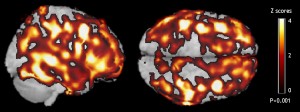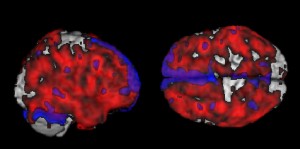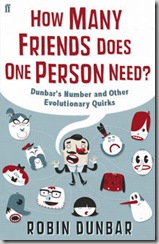Published: March 15, 2010


Two views of a composite image of the brains analyzed in Dr. Mosconi’s study highlight the average increase in amyloid-beta deposits among 14 healthy adults with a mother affected by Alzheimer’s. Regions in yellow have 4 times more amyloid than the corresponding regions of 14 healthy counterparts with no family history of dementia, while regions in red have twice as much amyloid.
New imaging tool could eventually lead to earlier detection among pre-symptomatic individuals
A family history of Alzheimer’s is one of the biggest risk factors for developing the memory-robbing disease, which affects more than 5 million Americans and is the most common form of senile dementia. Now an international collaboration led by NYU Langone Medical Center researchers has found the likely basis for this heightened familial risk—especially from the maternal side. [continue reading…]
Published: March 15, 2010
 Meditation has analgesic benefits associated with creating a relaxed state of mind and enhancing the ability to moderate reactions to pain, according to new research published in The Journal of Pain, the peer review publication of the American Pain Society. [continue reading…]
Meditation has analgesic benefits associated with creating a relaxed state of mind and enhancing the ability to moderate reactions to pain, according to new research published in The Journal of Pain, the peer review publication of the American Pain Society. [continue reading…]
Published: March 14, 2010
Renowned evolutionary anthropologist Professor Robin Dunbar visits the RSA to explain how the very distant past underpins all of our current behaviours, and how we can best utilise that knowledge .
 The director of the Institute of Cognitive and Evolutionary Anthropology at Oxford University is also the author of How Many Friends Does One Person Need? (Faber)
The director of the Institute of Cognitive and Evolutionary Anthropology at Oxford University is also the author of How Many Friends Does One Person Need? (Faber)
Published: March 13, 2010
The pitfalls of life with a difficult mother The Independent
I to could write a book on this subject. Its 5 years since my mother passed away and only now am I beginning to understanding the complexity of my relationship with her and the coping mechanisms that I developed to negotiate and maintain our relationship. And how it came at great personal cost.
Oh that I could, with my hand on heart, profess not to be “mummy dearest” to my own 4 kids. Fortunately though I have my partner Dr. O, who is on me like a “ton of bricks” whenever I stray too far down that path! This great article in the Independent is written by psychologist Dr. Terri Apter whose books on family dynamics, identity and relationships have received international acclaim link to read



 The director of the Institute of Cognitive and Evolutionary Anthropology at Oxford University is also the author of How Many Friends Does One Person Need? (Faber)
The director of the Institute of Cognitive and Evolutionary Anthropology at Oxford University is also the author of How Many Friends Does One Person Need? (Faber)
